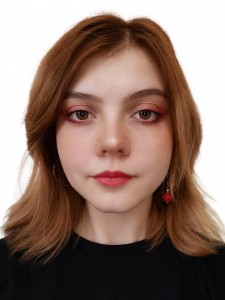On the 12th of April 2023, as part of the Photonics Seminar Series, we will have the pleasure to have two Skoltech Master students Anastasia Netrusova (MSc-1) and Altynai Sydygalieva (MSc-1) present their research.
When: On the 12th of April 2023, Wednesday, at 17:00 MSK time
Where: New Campus room E-B2-3007 / BigBlueButton
 Anastasia Netrusova will review a paper entitled “Recent advances in mode-locked fiber lasers based on two-dimensional materials“.
Anastasia Netrusova will review a paper entitled “Recent advances in mode-locked fiber lasers based on two-dimensional materials“.
Anastasia Netrusova is a 1st year MSc student (Photonics and Quantum Materials) in the Nanomaterials, under the supervision of Prof. Yury Gladush. She graduated from Novosibirsk State University, Department of Physics, sub-department of Quantum Optics. Anastasia used to work at the Fiber optics laboratory, Institute of Automation and Electrometry of the Siberian Branch of the RAS. Her field of interest is fiber optics, ultra-short fiber lasers.
The study and use of two-dimensional (2D) materials have received a lot of attention due to their special features. We concentrate on the use of 2D materials in mode-locked fiber lasers in this review. We provide an overview of the synthesis processes for 2D materials, fiber integration with 2D materials, and saturable absorbers based on 2D materials. We talk about how different mode-locked fiber lasers operate at common operational wavelengths like 1, 1.5, 2 and 3 m. Finally, a summary and outlook for future mode-locked fiber laser applications of the novel materials are offered.
 Altynai Sydygalieva‘s talk is entitled Optical sensor for noninvasive edema monitoring.
Altynai Sydygalieva‘s talk is entitled Optical sensor for noninvasive edema monitoring.
Altynai Sydygalieva did her B.S. in Tomsk Polytechnic University (TPU). Now she is a 1st year MSc student in Biophotonics Lab, under supervision of Prof. Dmitry Gorin.
Edema is a medical condition characterized by the accumulation of excess fluid in the body’s tissues, leading to swelling and discomfort. Traditional methods of monitoring edema involve invasive techniques, such as needle puncture or tissue biopsy. However, non-invasive optical sensors have emerged as a viable alternative for monitoring edema in a non-invasive and real-time manner.